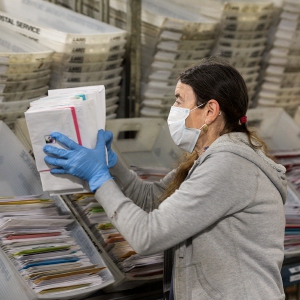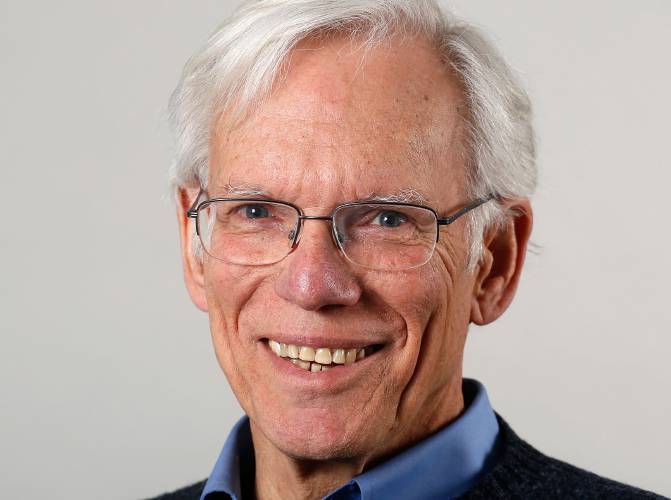Column: Addiction is a disease familiar to many
| Published: 08-28-2023 9:51 AM |
As one of the 46% of Americans who have a family member or friend who struggles with chemical dependency, I view the reporting on Hunter Biden’s misdeeds as a missed opportunity to educate the half of the country who does not view addiction as a chronic but treatable medical condition. I intend to use this column to seize that opportunity.
First and foremost, language matters. The National Institute on Drug Abuse, the federal agency whose mission is to advance science on the causes and consequences of drug use and addiction and to apply that knowledge to improve individual and public health, views the term “addict” as charged and stigmatizing. Their preferred term, substance use disorder (SUD), separates the person from their disorder and does not reinforce long-held beliefs that those suffering from chemical dependency are “dangerous, incapable of managing treatment, or at fault for needing treatment.” Recognizing that language can influence public perception, in 2017 the Associated Press’ style book, which guides journalists on reporting, recommended avoiding words like “abuse, problem, addict and abuser in most cases.” Changing language use is difficult but crucially important for it will help to reinforce that SUD is a chronic condition.
Those of us who have a family member or friend who suffers from SUD knows that no one chooses to have that chronic condition any more than someone chooses to have asthma, type II diabetes, or hypertension. As cited in a 2018 NIH study, “While a person initially chooses to take drugs, over time the effects of prolonged exposure on brain functioning compromise that ability to choose, and seeking and consuming the drug become compulsive, often eluding a person’s self-control or willpower.”
Those of us who have a family member or friend who suffers from SUD also know that it is a hard condition to live with. As the American Psychiatric Association notes: “Changes in the brain’s structure and function are what cause people to have intense cravings, changes in personality, abnormal movements, and other behaviors. Brain imaging studies show changes in the areas of the brain that relate to judgment, decision making, learning, memory, and behavioral control.” Because of these changes in the brain, people with a substance use disorder are often willing to do anything to get a fix. They might lie, steal, cheat, isolate themselves, and abandon and alienate family members. They sometimes commit petty and major crimes to get cash for their drug of choice. People struggling with addiction may resort to selling personal and family possessions, heirlooms, and themselves to get cash for their drug of choice. While deep in their addiction, it may appear that they don’t care how their behavior affects others.
And those of us who have a family member or friend who suffers from SUD know there is no fast or reliable treatment for the condition. Because their judgment is impaired to the point where their desire for the substance is stronger than the negative consequences of its use, we know it often takes years for a loved one to seek treatment. We also know that finding and paying for treatment can be prohibitive. Funding for addiction treatment through insurance and government programs is often limited to two weeks of inpatient treatment, assuming you can find a bed. Funding for aftercare, which is an essential component to treatment, is often non-existent. Consequently the “treatment” offered to those suffering from SUD is often incarceration that results from their distorted behaviors, a “treatment” that is more costly and far less effective than that recommended by medical professionals.
Finally, and most distressingly, those of us who have a family member or friend who suffers from SUD know that relapse is likely. A 2021 report from Rehab After Work cites that 40-60% of those getting treatment for addictions will relapse, with Opioid and alcohol addicts experiencing relapse rates higher than 80%. And relapses can occur any time from months to years after treatment and often result in a repetition of the misbehavior that occurred before the treatment.
With nearly half of the population not viewing SUD as a medical problem and no proven treatment for SUD, finding a political solution other than incarceration is difficult. The recent opioid settlement with drug companies that fueled the expansion of SUD, though, offers some promise for the treatment and research on SUD. NHPR reported in May that the first round of opioid settlement funds in New Hampshire will go toward “harm reduction services, youth prevention efforts, peer recovery supports and residential treatment and housing,” evidence that policy makers in New Hampshire realize SUD is a medical condition that needs to be treated in several ways. To their credit, New Hampshire is one of only 15 states who agreed to publicly report how they will use their settlement funds. These reports should help researchers identify the most effective means of preventing and curing the SUD. It’s also possible that as the public becomes informed of these new programs that address the underlying factors that contribute to SUD, they might avoid condemning those who suffer from the condition and support their healing. Those of us who have a family member or friend who suffers from SUD hope that is the case.
Article continues after...
Yesterday's Most Read Articles
 Dartmouth administration faces fierce criticism over protest arrests
Dartmouth administration faces fierce criticism over protest arrests
 West Lebanon crash
West Lebanon crash
 Plan on track to ship Upper Valley mail to Connecticut for sorting
Plan on track to ship Upper Valley mail to Connecticut for sorting
 Lebanon’s Jewell back from auto accident, more aware of ‘drowsy driving’ dangers
Lebanon’s Jewell back from auto accident, more aware of ‘drowsy driving’ dangers
 Longtime employees buy West Lebanon pizzeria
Longtime employees buy West Lebanon pizzeria



 Editorial: Response to campus protests only adds fuel to the fire
Editorial: Response to campus protests only adds fuel to the fire Editorial: Chris Sununu’s moral vacuum
Editorial: Chris Sununu’s moral vacuum Editorial: Gambling tarnishes America’s sporting life
Editorial: Gambling tarnishes America’s sporting life By the Way: A white nationalist’s many mistruths
By the Way: A white nationalist’s many mistruths
